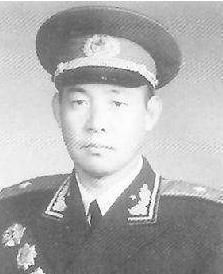Founding Major General Liu Maogong was seriously ill, and on his deathbed, he contacted the Fumei Battle Martyrs Cemetery in Mei County, Shaanxi Province, hoping to be buried in this cemetery after his death, unfortunately, the cemetery refused Liu Maogong's request, and explained that the cemetery buried the martyrs who died in the Battle of Fumei, Liu Maogong did not meet the conditions and could not be buried.
Of course, they also knew that Liu Maogong was an important commander of the Fumei Campaign that year, so they gave him an idea, saying: We can find our superior leaders, give special approval, and then we can be buried.

In Liu Maogong's capacity, it was very easy to find their superior leaders to be accommodating, but Liu Maogong politely refused, saying: I am a 74-year-old party member, and every party member must abide by discipline, and since there are regulations in the cemetery, I resolutely cannot violate them.
So, why did Liu Maogong want to be buried in the Fumei Battle Cemetery so much?
This has to mention the fierce battle of that year.
In 1949, the Battle of Fumei began, and Mr. Peng led the First Field Army to a desperate struggle with 170,000 national troops.
At that time, Liu Maogong, commander of the 10th Division of the Second Corps, led his troops to the town of Luoju and cut off the enemy's way back, but due to the disparity in strength between the enemy and us, Liu Maogong's troops suffered heavy losses, in order to boost the morale of the soldiers, Liu Maogong took the lead as a soldier, rushed to the front line, and used his flesh and blood to resist the enemy's indiscriminate bombardment.
Under the leadership of Liu Maogong, the whole division held its position for three days and nights, with nearly half of the casualties, and Liu Maogong himself was seriously injured, and finally the soldiers carried back to the hospital for treatment in time before they recovered a life.
This fierce battle made Liu Maogong unforgettable. After the founding of the People's Republic of China, he went to the Fumei Battle Martyrs' Cemetery every year on the Qingming Festival to mourn those comrades who sacrificed their lives.
Because of this, one of Liu Maogong's wishes is that he hopes that when he goes, he can be buried in the Fumei Battle Martyrs' Cemetery, but he does not want to break the existing regulations, so he died of illness at the age of 97 and can only be buried in another place with regret.